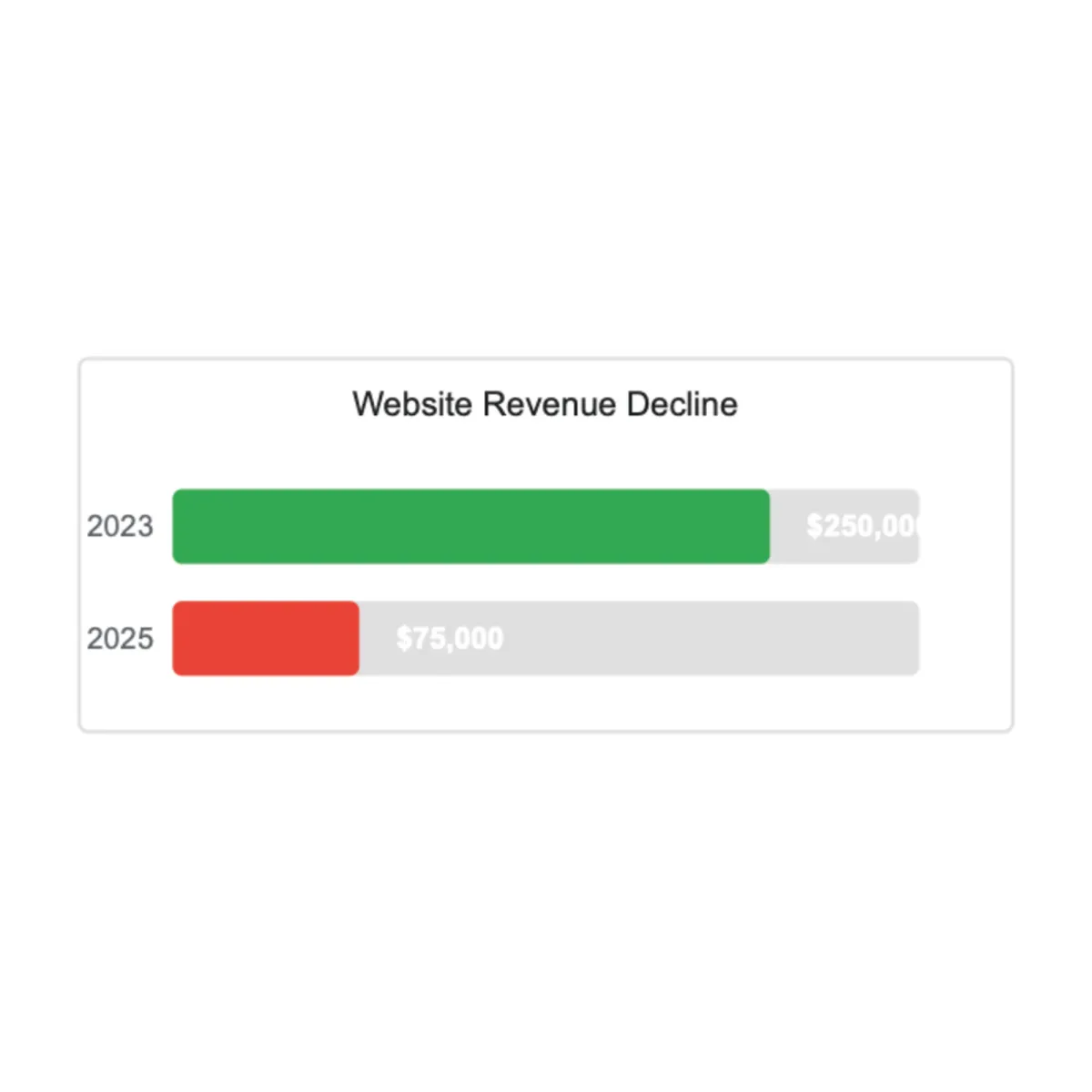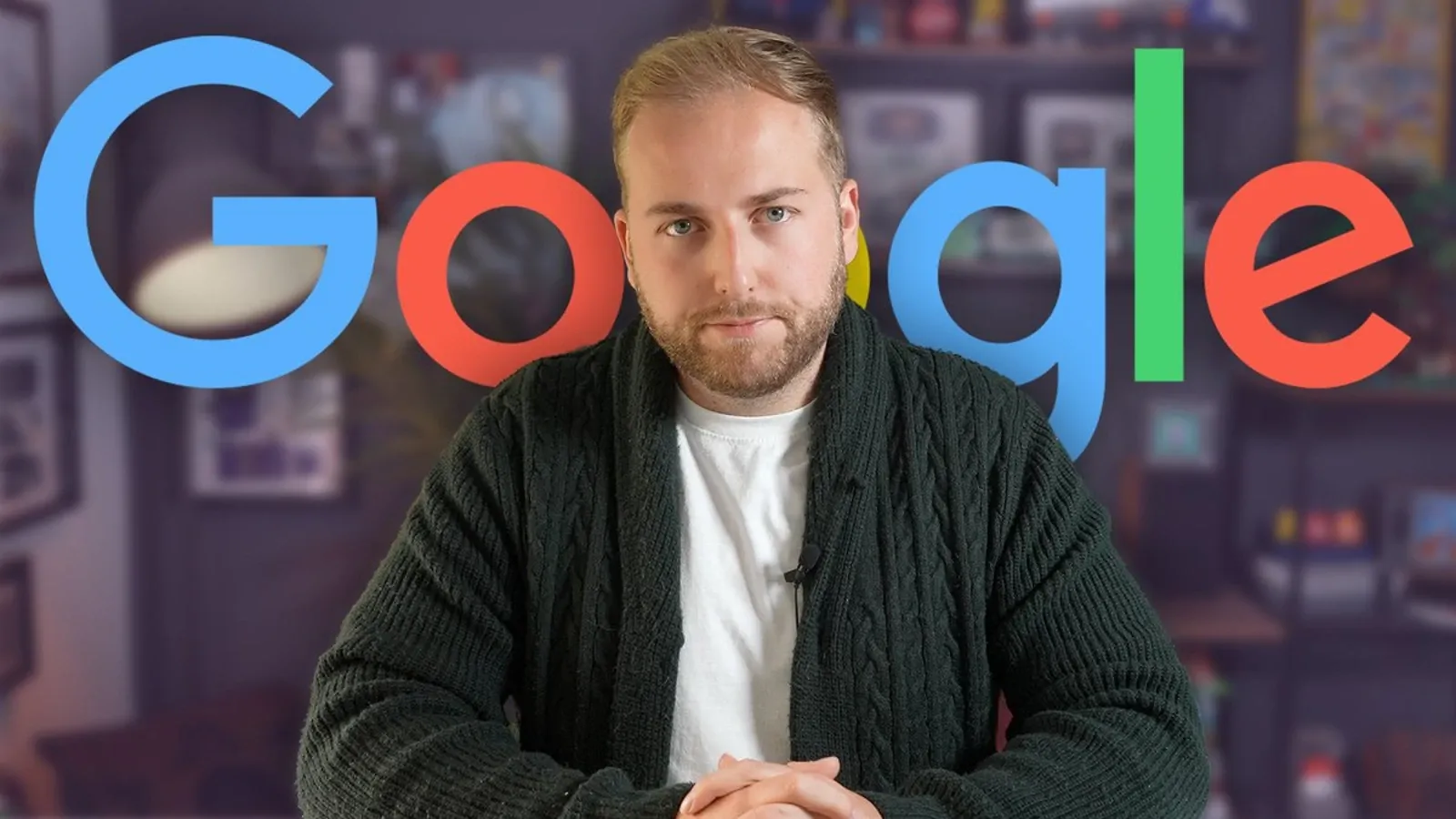
According to Bloomberg, Google's introduction of AI-generated answers and recent search algorithm changes have caused website traffic to plummet, with many publishers reporting declines of 70% or more. This dramatic shift has disrupted the long-standing relationship between Google and content creators, forcing many to shut down or completely reinvent their distribution strategies.
The findings, based on interviews with 25 publishers and data from web analytics firm Similarweb, reveal the devastating impact across multiple industries, including travel, home improvement, cooking, and lifestyle content. Website creators who followed Google's own quality guidelines now face an existential threat to their businesses and livelihoods.
In March 2024, Morgan McBride posed for photos in her half-renovated kitchen for a Google advertisement celebrating how the search giant had helped her family's business grow. By the time the ad ran approximately one month later, traffic from Google to Charleston Crafted, her do-it-yourself home improvement website, had fallen more than 70%, according to McBride.
"You can't just sit around waiting for things to turn around," McBride told Bloomberg. In the year since the traffic collapse, she reported that display advertising revenue on her site dropped 65%, resulting in tens of thousands of dollars in lost income.
This experience is far from isolated. Data analyzed by Similarweb for Bloomberg showed significant declines across 67 small publisher sites spanning multiple categories. Travel websites, where Google has recently introduced robust AI features, experienced the most pronounced drops.
The introduction of AI Overviews, which summarizes content directly in Google search results without requiring users to visit the original sources, appears to be a major contributor to the traffic decline. This new feature often presents information in Google's own voice while showing only snippets from the websites where the information originated.
Google held a meeting with approximately 20 website creators at its Mountain View, California headquarters in October 2024. During this gathering, Google representatives apologized to the web creators, acknowledging that their sites represented exactly the kind of helpful content the company wanted to surface in search results.
However, Google employees also stated they could not guarantee any recovery for these websites because "the search product had fundamentally changed in the AI era," according to multiple attendees cited in the Bloomberg report.
Mike Hardaker, founder of Mountain Weekly News which reviews outdoor gear, recounted telling Google's chief search scientist Pandu Nayak that most of the group had struggled with little to no web traffic for more than a year. Hardaker, who had made $250,000 in gross revenue in 2023, told Google executives he was relying on a food bank by the time of the October meeting.
"I need to know as a business owner, and personally, if you think there's a chance that some of our sites have the ability to recover," Hardaker said at the event, according to detailed notes reviewed by Bloomberg.
Nayak apologized but said it wouldn't be reasonable for him to make any guarantees to the publishers because he couldn't predict what would happen.
Contradicting claims
Google has disputed that AI Overviews damaged website traffic. A spokesperson told Bloomberg it was "misleading to make generalizations about the causes" of declining traffic "based on individual examples." They added that traffic can fluctuate due to numerous factors, including seasonal demand, users' interests, and regular algorithmic updates to search.
However, evidence from multiple sources challenges this position. Gisele Navarro, managing editor for air purifier review site HouseFresh, shared internal web analytics with Bloomberg showing that while more people are seeing her content via AI Overviews, fewer are clicking through to visit her site. Sites don't generate revenue unless users click through and see ads or buy products.
 PPC LandLuís Rijo
PPC LandLuís Rijo
This pattern—more views of a website owner's content on Google but fewer clicks to their sites—is occurring broadly, according to Nick Eubanks, a vice president at digital marketing company Semrush Holdings Inc. He told Bloomberg that AI Overviews is one of several factors contributing to this trend, which would likely continue as summaries are displayed for more queries.
Quality concerns
Publishers have also raised concerns about the accuracy of Google's AI-generated content. Morgan McBride noted that for home renovation questions, Google's AI might give unsafe or simply inaccurate advice, such as recommending specific products that don't exist.
Jake Boly, founder of That Fit Friend, which reviews training shoes, expressed concern about the sustainability of Google's approach: "I don't understand how Google thinks this is sustainable. If you drive away all enthusiasts and small publishers, then we're going to be overrun by spam and the few players who can afford to pay to play."
Creators have documented examples of Google's algorithms seemingly prioritizing content from low-quality sources. "Right now, Google is suggesting that some of the best advice about where to go to the beach near Philadelphia comes from a luggage storage company and a driving school," said Laura Longwell of the blog Travel Addicts. "The idea that any of that is based on experience or expertise is laughable."
Conflicting guidance
The situation has created frustration among content creators who followed Google's longstanding guidance. For years, Google emphasized that website owners should focus on making content driven by experience, expertise, authoritativeness, and trustworthiness, or "EEAT," as the set of guidelines is known to publishers.
"For years, Google has had the audacity to gaslight us, saying, 'Don't write for search,'" said Hardaker. "Well, then, who am I writing for?"
According to Bloomberg, part of the problem is that low-quality sites that Google aims to remove through its search algorithm updates—including AI-generated spam sites—can appear similar to independent websites. Lily Ray, senior vice president for search engine optimization strategy at marketing agency Amsive LLC, noted this creates challenges in distinguishing quality content.
Future of AI and search
Google's approach to AI in search is shifting toward providing immediate answers rather than directing users to outside websites. The company has begun testing a new recipe feature that summarizes food bloggers' content directly in Google search. Creators participating in this pilot program receive direct compensation, but according to Marc McCollum, chief innovation officer at media company Raptive, the payments are "not nearly enough to offset declines in their advertising revenue."
If fully implemented, Raptive estimates traffic to food blogs would fall by half.
The power imbalance between Google and individual creators is so pronounced that many publishers invited to participate in the recipe pilot felt they had little choice, according to Lisa Bryan, author of health-food site Downshiftology, who is close with creators in the program but not involved herself.
"The big fear," Bryan told Bloomberg, is that "Google is severing the relationship that we have with our communities and our audiences."
Personal impact
For many website owners, the consequences have been severe. Bloomberg reported that at least three sites whose publishers attended Google's creator summit have had to shut down their operations entirely.
Dave Bouskill and Debra Corbeil, a Toronto-based couple who launched travel blog The Planet D in 2008, initially saw their traffic fall by half in the first few months after the introduction of AI Overviews. As they watched fellow travel bloggers go out of business, they attempted to adapt to the new reality with a smaller operation. However, when traffic plummeted by 90% and revenue declined almost as much, they decided to stop updating their blog.
The couple told Bloomberg it has been painful to watch Google's AI Overviews reproduce travel tips they once offered, especially when the AI uses their Canadian slang.
"I do feel betrayed by Google," Bouskill said, with Corbeil adding: "Betrayed, that's the word."
To rebuild their livelihood, the couple has redirected their efforts to YouTube, another Google-owned property.
What this means for marketers
This dramatic shift in how search functions has significant implications for the marketing community. The traditional SEO model, where creating high-quality content was rewarded with organic visibility, appears to be fundamentally changing. For marketing professionals, this development necessitates a strategic reassessment of content distribution channels and revenue models.
As Google increasingly positions itself as not just the gateway to information but the destination itself, marketers must adapt their strategies. This may include diversifying traffic sources beyond Google Search, exploring direct relationships with audiences through newsletters and social media, and rethinking how content is monetized when fewer visitors reach a website.
The situation also raises questions about the future data ecosystem. If independent publishers continue to struggle, the diversity and quality of information available to train future AI models may degrade, potentially creating a negative feedback loop that impacts the accuracy and utility of AI-generated content.
Timeline of Google's AI search transformation
- March 2024: Morgan McBride participates in a Google advertisement showcasing how the search engine helped her business grow.
- April 2024: McBride reports traffic to her website, Charleston Crafted, fell more than 70%.
- October 2024: Google hosts approximately 20 website creators at its Mountain View headquarters to discuss the impact of search changes on their businesses.
- Early 2025: According to Bloomberg reporting, at least three websites whose publishers attended the October summit have shut down their operations.
- April 7, 2025: Bloomberg publishes investigation detailing the impact of Google's AI features on independent websites based on interviews with 25 publishers and data analysis.
- Present: Multiple publishers report traffic declines of 70-90%, with many questioning the sustainability of their businesses as Google continues rolling out AI features that summarize content directly in search results.

